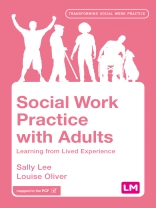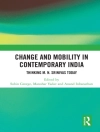This book will provide you with the initial developing knowledge and skills needed to practice ethically and effectively in diverse settings with a range of adults. Written in collaboration with service users, carers and practitioners, its unique collaborative approach will enable you to learn from real lived experience.
Since launching in 2003, Transforming Social Work Practice has become the market-leading series for social work students. These books use activities and case studies to build critical thinking and reflection skills and will help social work students to develop good practice through learning.
These books are:
· Affordable
· Written to the Professional Capabilities Framework
· Mapped to the social work curriculum
· Practical with clear links between theory and practice
Mục lục
PART I: KEY CONCEPTS AND IDEAS
Chapter 1 Key themes in social work practice with adults
Chapter 2 Assessment in social work practice with adults
Chapter 3: Trauma informed practice in social work with adults
Chapter 4: Decision making in social work practice with adults
PART II: WORKING WITH ADULTS IN PRACTICE
Chapter 5: Working with mental health issues
Chapter 6: Working with the Mental Capacity Act 2005
Chapter 7: Working with substance use
Chapter 8: Working with marginalized adults
Chapter 9: Working with domestic abuse and supporting adults with care and support needs
Chapter 10: Working with children (under the age of 18 years) who are abusive towards their parents
Chapter 11: Working with disabled adults
Chapter 12. Working with adults with learning disabilities
Chapter 13: Working with older adults
Chapter 14: Working with adults with dementia
Chapter 15: Working with adults at the end of life
Chapter 16: Working with unpaid carers
Conclusion
Giới thiệu về tác giả
Louise is a qualified social worker and has predominantly worked within children’s social care. Louise is currently a lecturer in social work at Bournemouth University. Louise completed her Ph D in 2019 and her key interests are child-to-parent violence and abuse, working with disabled children and learning from the lived experience. Louise embraces biographical research methods as it illuminates the lived experiences and helps develop an understanding of social work across the life course.












